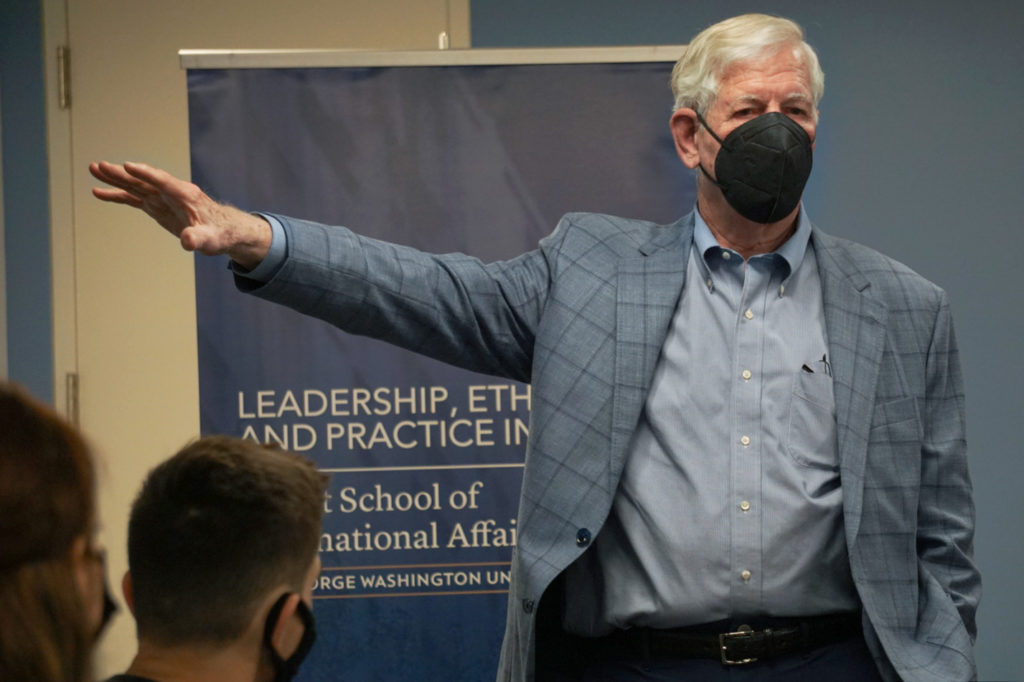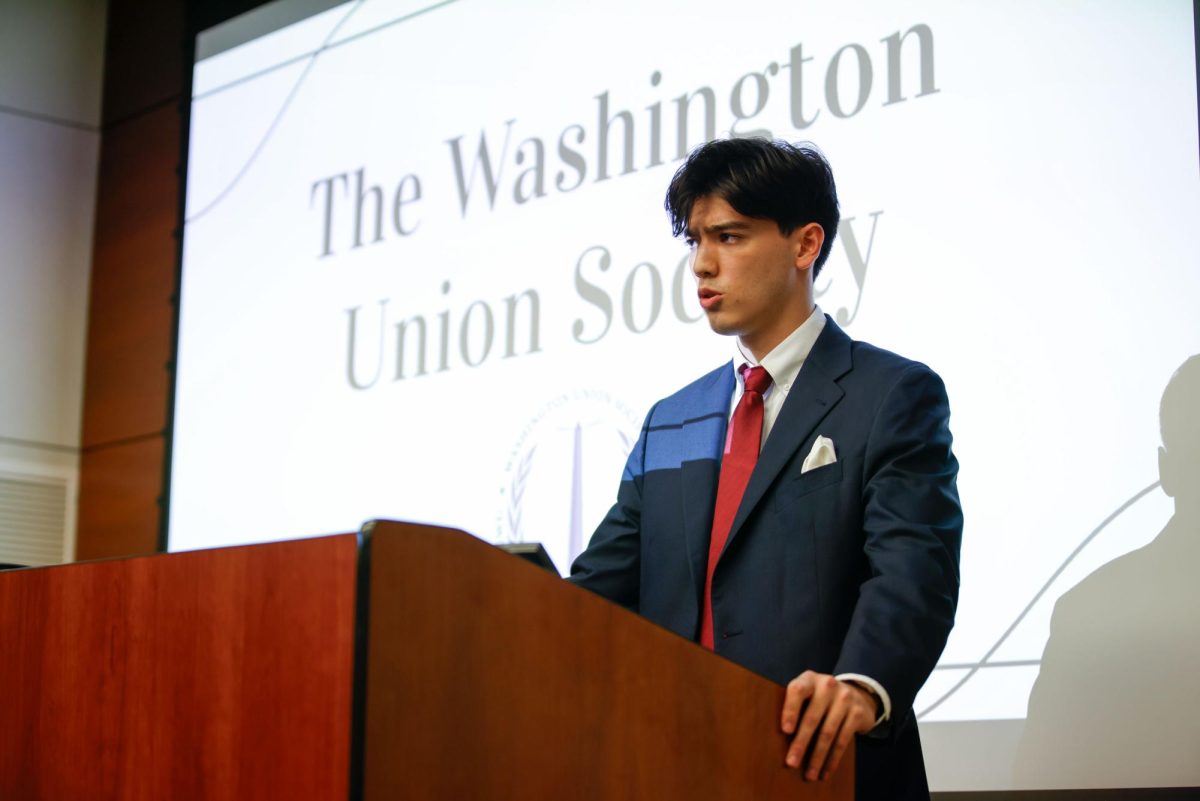The former chairman of the Joint Chiefs of Staff discussed personal character and leadership at the Elliott School of International Affairs Tuesday.
Gen. Richard Myers discussed his experiences as one of the highest ranking officers in the U.S. military, the entry of students into public service and his opinions on university governance. About a dozen attendees filed into the event, which was hosted by The Elliott School’s Leadership, Ethics and Practice Initiative and moderated by alumnus Sebastian Reyes.
Myers said quality leaders should exhibit honor, humility and humor, and those who fail to be humble or recognize their own strengths will struggle to rise in their careers.
“It’s your personal integrity that enables you to be trusted, which enables relationships,” he said at the event. “So when you think about it, the whole honor thing – integrity – how we get through life is in relationships, whether it’s our partners in life, or other folks in our military unit, or folks in other countries’ militaries.”
Myers said President Joe Biden has succeeded in creating unity among Western countries in the wake of the Russian invasion of Ukraine. He said staying united has become increasingly difficult since previous U.S. administrations have turned the country inward with less interest in international diplomacy and military intervention.
“Then there are actors that would like to destroy our world order as we know it,” he said. “And so China has worked on that very hard – sorry, but I don’t do much about that – and Russia is working on right now and this is an assault on a liberal democracy, and the standards we’ve had since World War II about how we deal with each other.”
Myers said young people who are planning on joining the military should never allow for the training regiments to compromise their values or upbringing. He said maintaining your own independence and personality will help people stand out in their careers.
“I always sort of kept my eyes on the bigger picture,” he said. “And never compromise your values – they won’t ask you to do that – they may push you, but don’t ever compromise your values, your personal values, what you hold dear, just to get ahead. Just be yourself.”
Myers added that people in leadership roles need to be prepared to stand up to their superiors when they make decisions they disagree with.
He said during the administration of former President George W. Bush, military leaders announced a policy that excluded Afghan citizens from the Geneva Convention, which set legal standards for wartime humanitarian efforts. Myers said he and a group of military officers had to respond swiftly to the decision to convince President Bush to reverse the decision because of their humanitarian objections to the move.
“Sometimes you are so busy you just need to step back, go up to 30,000 feet, look down and say, ‘Are we doing this in an ethical way that’s consistent with our values in America, my personal values,’” he said.
Myers, the former president of Kansas State University, said part of his success leading the university involved giving all parts of the school’s community – including faculty and the student government – a role in policy decisions, including topics like admissions and tuition costs.
Earlier this month, GW conducted a shared governance survey of faculty, administrators and trustees that found the groups supported more involvement from faculty and administrators in long-term planning. The survey did not mention increased involvement from the Student Association in policymaking.
“The student government association has a huge responsibility and huge authority on our campus,” he said. “It’s not just lip service that we say they have been a part of our shared governance structure. They’re deeply involved when it comes to budget, tuition, fees – their vote is probably the most important point before we go to the Board of Regents and the state legislature.”








